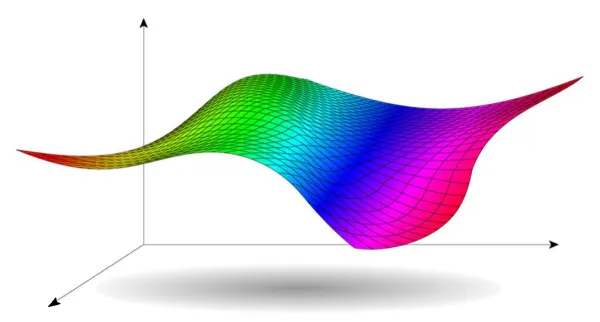About
In my heart of hearts, I am a scientist as much as a teacher. I would never give up the lab for the lecture room. That being said, I always enjoy helping someone tackle the science and math challenges they face. After all, if you are passionate about a subject you want to share that. I hold a PhD in Organic Chemistry from Georgia Tech and have taught college chemistry for the past ten years. Also, I have about six years experience teaching high school STEM courses.
Highlights
Payment methods
Specialties
Grade level
Type of math
Photos and videos




Reviews
Paul S.
Kristy B.
Will H.
Stan W.
Frequently asked questions
What is your typical process for working with a new student?
When possible, it's useful to have a heads up before a first session to know the students' goals: a class syllabus, unit outline, homework set, or simply a list of concepts to discuss and review. I am okay with a general discussion of concepts, but I find students seem to get more out of attacking example problems directly. That way, we can get right to the heart of the matter during a tutorial. However, I don't use prepared notes since working through the process is an important thing to model - including false starts and missteps. A polished solution to a problem can be intimidating. Plus, that's not how the work is done behind the scenes.
What education and/or training do you have that relates to your work?
I have been tutoring chemistry, physics, math, computer programming, and SAT prep for years, largely based on word of mouth. I taught public high school science for eigth years and have been teaching college chemistry in one form or another for about twenty years.
Do you have a standard pricing system for your lessons? If so, please share the details here.
I usually ask $40/hour (in 15 minute chunks) for online sessions which I find to be as effective as meeting in person and easier to schedule. It's better if the student has a desktop or tablet giving the ability to draw pictures rather than a phone. If the student lives in the Atlanta metro area, I will come to him (or her) but ask an extra $10/visit to cover gas (e.g. for a 20 mi one way drive). I am COVID vaccinated. Also, I am happy to meet in a public setting such as a library, coffee shop or park.
How did you get started teaching?
Teaching started for me in the study groups my friends and classmates held in college. Helping one another work problems and explain ideas was a great way to teach, and just as important, learn concepts. Most teachers know that helping someone else to gain mastery is the best way to refine their own.
What types of students have you worked with?
I have worked with students of all stripes. I am most useful to students who can communicate clearly what it is they are struggling with. I suppose I am not much help to students who find that their own lack of interest is the obstacle to their learning. To me, the coolness of math and science is self-evident, and it's not always possible to substitute my science enthusiasm for someone else's. However, I employ metaphors and real life examples to make ideas more accessible.
Describe a recent event you are fond of.
Last month, I had a student in an advanced program studying analytical geometry, a course I have never taken myself. He was referred to me by another tutor that had never seen material like that before. After I saw some examples, I thought I could help out. Now this was a bright kid, and he had the algebra basics down pretty well, so finding the solutions was really like solving puzzles more than anything else. Also, it was a real collaboration of minds, and I must admit I totally geek out on a good math puzzle. He was using our sessions to review for his final exam, and mostly we were looking at trickier stuff from the past term for which solutions had not been given. That was a lot of fun for us both I think, and he let me know that he scored an A on the test! Sweet.
What advice would you give a student looking to hire a teacher in your area of expertise?
First, find someone that you are comfortable talking to. If you share the same humor or have some other personal connection even better; I personally like movies and music. You need to feel free saying "hey, slow down" or "I already know this, let's skip on a bit".
Second, teachers get a lot of training in something called "pedagogy" - teaching as a theory. I call it "teacherese". That can be useful, though having a teacher with that training but lacking a personal passion for, or expertise with, the subject they teach might be why you need a tutor in the first place. I remember teaching public school; I was tasked to teach Earth science when I knew very little about it. I was happy to learn, but I confessed to my students that I did the reading every night just as I asked of them - learning it right along side them. I personally like my teachers to simply (a) know and love the subject and how to avoid its pitfalls, and (b) communicate clearly.
What questions should students think through before talking to teachers about their needs?
Ask yourself if you have honestly attempted to understand the material and seriously tried to solve assigned problems. It's no fun for your tutor and of little use to you to just have him (her) do your homework for you.
When my students ask questions, the first thing I usually do is ask them, "how did YOU try to work this out?" If it becomes clear that they haven't even attempted or thought about the work, I will give my cautionary sermon. Then, I will do my best to help. After all, getting the first foothold on understanding can be the toughest part. Explaining to a tutor what you've tried already, as a sounding board, can really help you get your own thoughts organized. However, if you are a student whose major challenge is bothering to care about the content at all, use a different tutor.
Finally, have a collection of specific topics you find confusing, or example problems that gave you trouble. That way, the time with your tutor will be much more efficient.